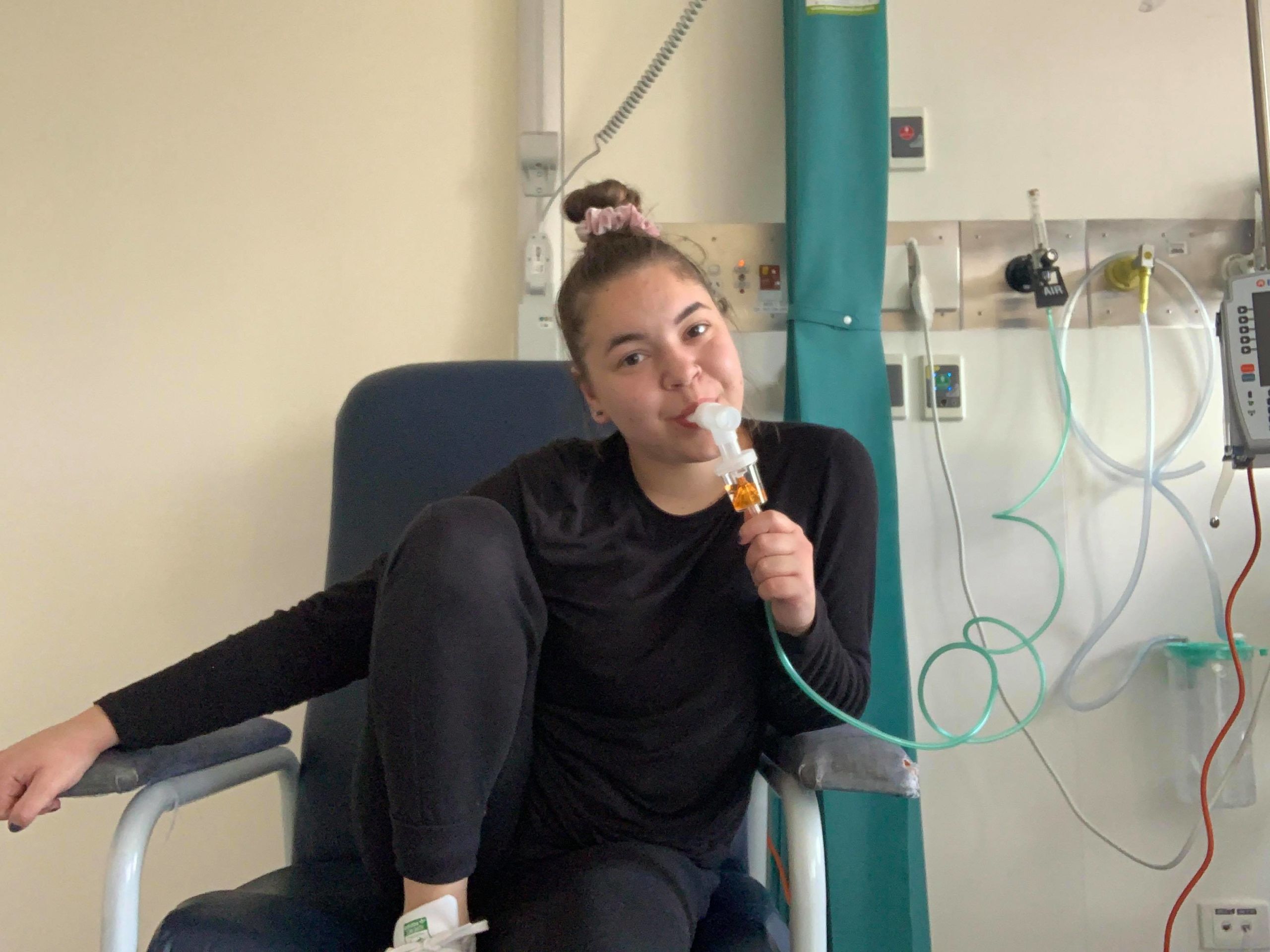cystic fibrosis
A DAY IN THE LIFE OF
CAITLIN MAGAGNA

Across Australia, just under 4000 people live with the genetic condition Cystic Fibrosis. A condition which mainly affects the lungs and digestive system. CEO of Cystic Fibrosis Community Care, Karin Knoester, has been working within CF (Cystic Fibrosis) foundations for the past six years. “It's not a super, super common condition, it is what we call one of the rare conditions…but it's the most common rare condition that an individual can get”. Whilst 4000 may appear small in the scheme of the population, CF’s affects are quite far reaching. What most Australian’s don’t know is one in 25 people are carriers of the CF gene. And in Tasmania, one in 20 people are carriers, the highest rate in the world after Ireland. Most who are carriers, an estimate of around 1 million people, are completely unaware.
For 20-year-old Caitlin Magagna, neither of her parents knew they were carriers of the Cystic Fibrosis gene. “Both parents need to be carriers of the CF gene change in order to pass [it on]” says Knoester. If both parents have the gene, there is a 25% chance of baby having CF, a 50% chance the child is just a carrier and a 25% chance the gene won’t be passed on at all. Whilst her younger sister doesn’t carry the gene at all, Caitlin was diagnosed with CF soon after birth.
Since 1986, babies born within Australia have been subjected to a neonatal screening test, more commonly known as a heel prick test, which screens for a number of rare conditions including Cystic Fibrosis. Another way CF diagnosis can come about is if a baby is born with bowel blockage. This blockage, indicated by a failure to pass the meconium (first bowel movement), was what led to Caitlin’s diagnosis. A sweat test is generally the final step of CF diagnosis due to the high levels of salt which appear in their sweat.
So what is Cystic Fibrosis and how does it affect those who have it?
People with CF require a significant amount of care says Knoester. “They do physiotherapy a couple of times a day, they take up to 40 tablets a day, they need to eat well, rest well [and] exercise well”. Like most busy young adults Caitlin’s days consist of trying to find time to balance a multitude of commitments and tasks as well as time to chill and watch some Netflix. “I'm at Uni most days, probably like two or three days, and then I sometimes have shifts during the week for work”. Between studying Nutrition at ACU, working and catching up with friends as well as teaching and attending dance classes - she is an avid ballet, jazz and hip hop dancer - there aren’t many hours of the day left free. However, Caitlin manages all this on top of completing her daily CF routines. There are also all the appointments and check-ups which come with having CF. “Almost weekly I'll be at the pharmacy needing to get some type of med or I have hospital appointment at least once a fortnight…so that will also take up quite a bit of time”.
Medication is an extremely important part of Caitlin’s, and most CF patients, routine. “[I’ll] never live a day in my life when I won't have an antibiotic or won't have at least some type of vitamin or mineral because it's just too hard to keep all [the] levels in [their] accurate ranges”. At any one time she will be taking vitamin ABDEK, salt tablets, vitamin C, reflux medications, laxatives, one to two different antibiotics, Creon – a pancreatic enzyme replacement – plus inhaled medications such as her salt water physio, Pulmozyme – helps break down mucus in the lungs – and an inhaled antibiotic if there is one.
Like with most chronic conditions everything can get quite expensive. “My mum [has] always taken care of [the fees] but...I know it adds up and I'm too scared to think of how much everything is costing over the years. Yeah and like you can't think that, but I definitely do”. Luckily, costs are kept down by the fact that many of the medications Caitlin and others with CF take are included on the PBS. “I don't know [there’s been] maybe between five or six times that we've had to pay for a medication that like wasn't under the PBS”. It is thanks to organisations such as Cystic Fibrosis Community Care, the Cystic Fibrosis Federation and Cystic Fibrosis Australia that those with CF don’t have to fork out the full amount. “We lobby quite extensively to the health department to ensure that these key drugs, some things like Kalydeco, Orkambi, Tazacaftor, or Symdeko can actually get funded through the PBS” says Knoester. As there are around 1700 different CF mutations, it is important that a range different medications are readily available. The work done by these organisations is crucial for those living with CF.
Lobbying and funding for CF research by organisations, such as the one Karin Knoester works for, has also helped raise the life expectancy to between 35 and 45, as well as the overall quality of life for those living with the condition. “If we [didn't] have access to funding for research then a lot of the more modern day treatment and care models would be sitting back in the 1960s where children didn't actually survive beyond five or six years. Now with the research that is carried out, we look at better ways of managing patients. We look at better ways of treating their infections, and there are some very, very good drugs on the market now”. Currently, as there is no known cure for CF, having the best treatments and medications available is paramount for helping manage the condition.
For Caitlin, the role CFCC (Cystic Fibrosis Community Care) plays is massively important. On top of funding research, they also help out with individuals with CF by paying for physio equipment. “We use it every day, sometimes up to two or three times a day. Machines are expensive and they can range from four to ten grand. We're really lucky as CFCC will cover up to 50% sometimes for the equipment we need”. It is crucial that those with CF complete physio as well as combing this with exercise. Put simply, Caitlin says “Your lungs are like muscles in the body, they need to be worked in order to strengthen them”. Working the lungs also helps her cough up the mucus and phlegm stuck in her chest. If a person with CF doesn’t partake in regular exercise and physio, mucus can become stuck, there can be more of it and it leads to easier infections. These infections result in further complications such as lower lung function and scaring of the lungs.
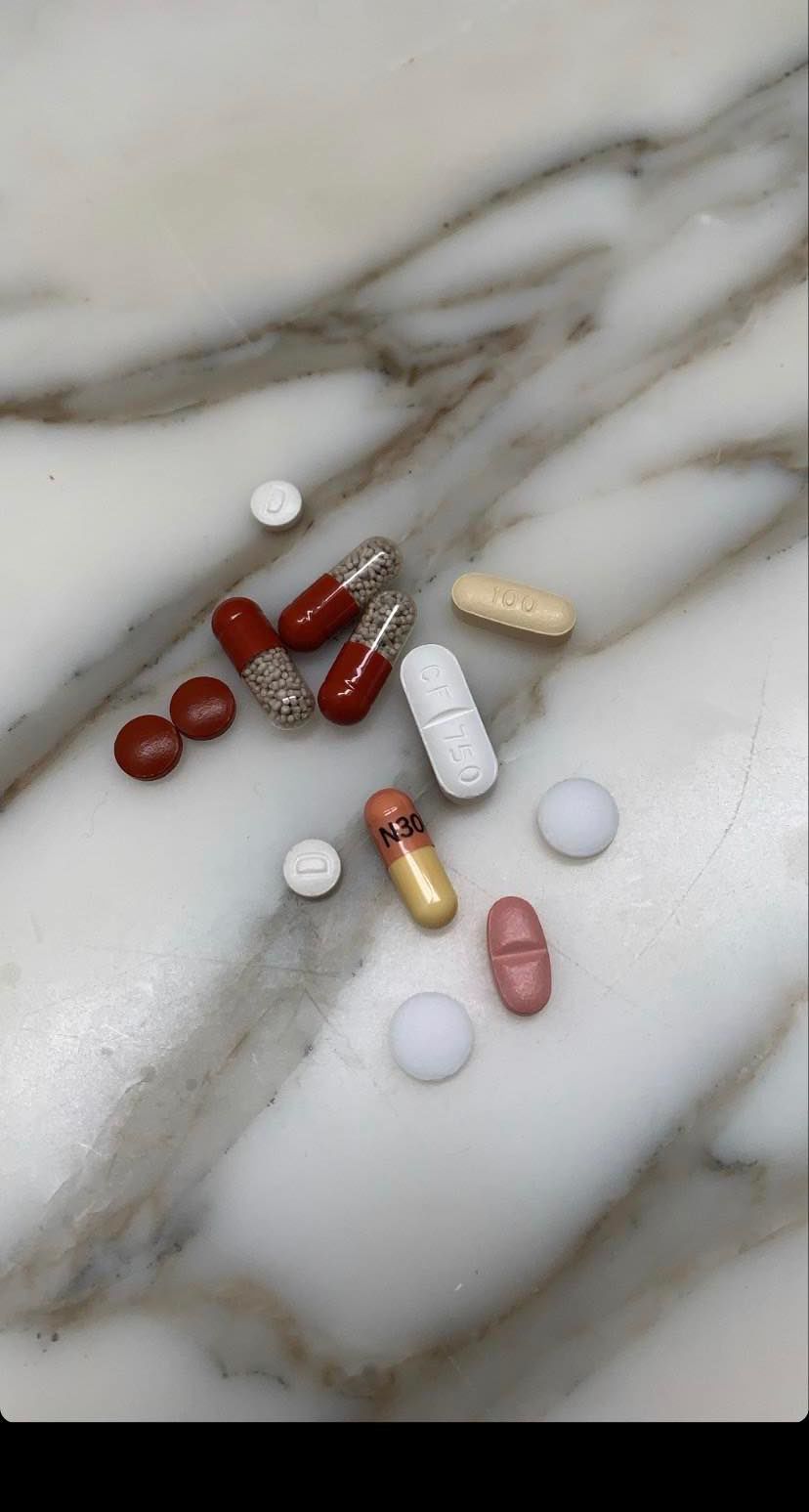
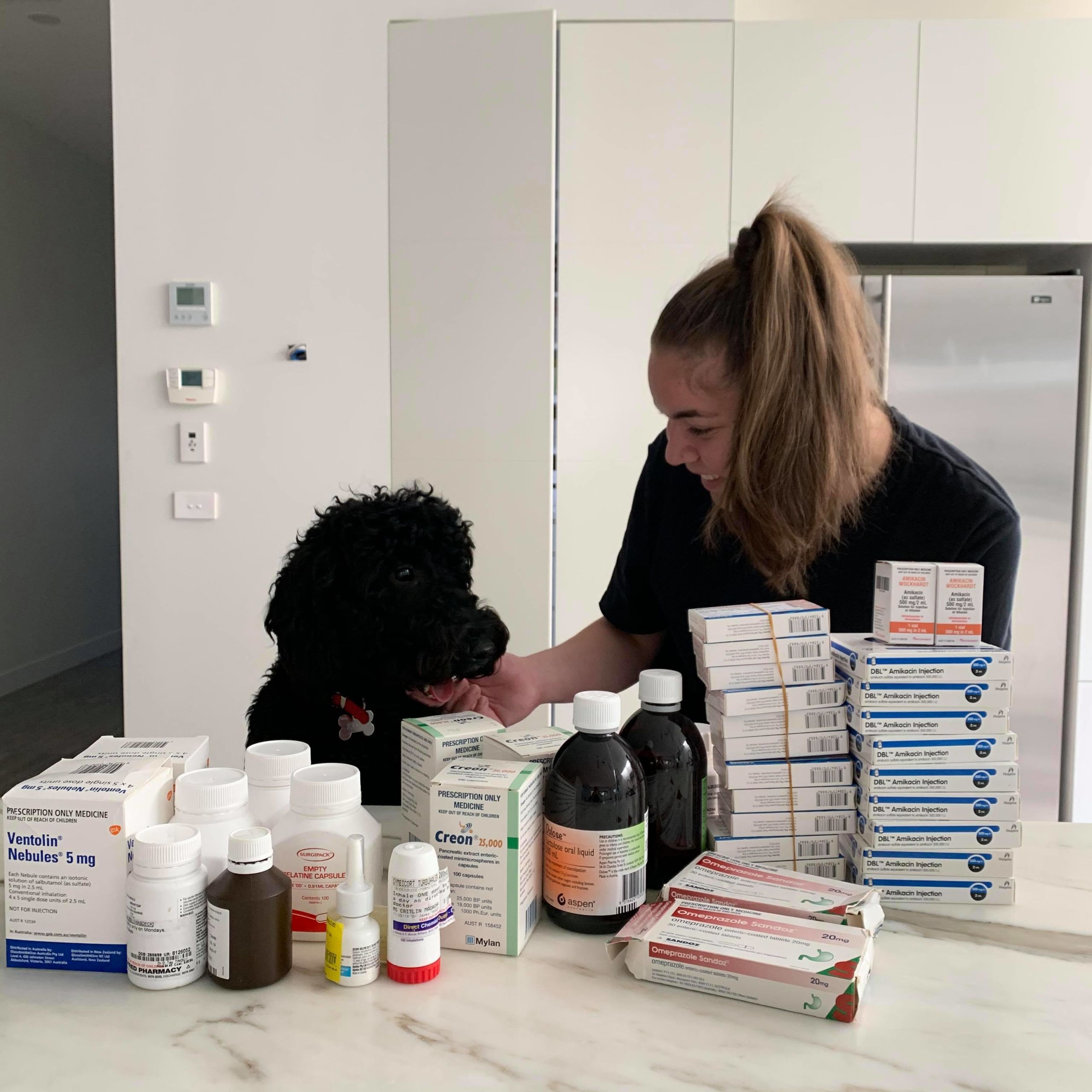
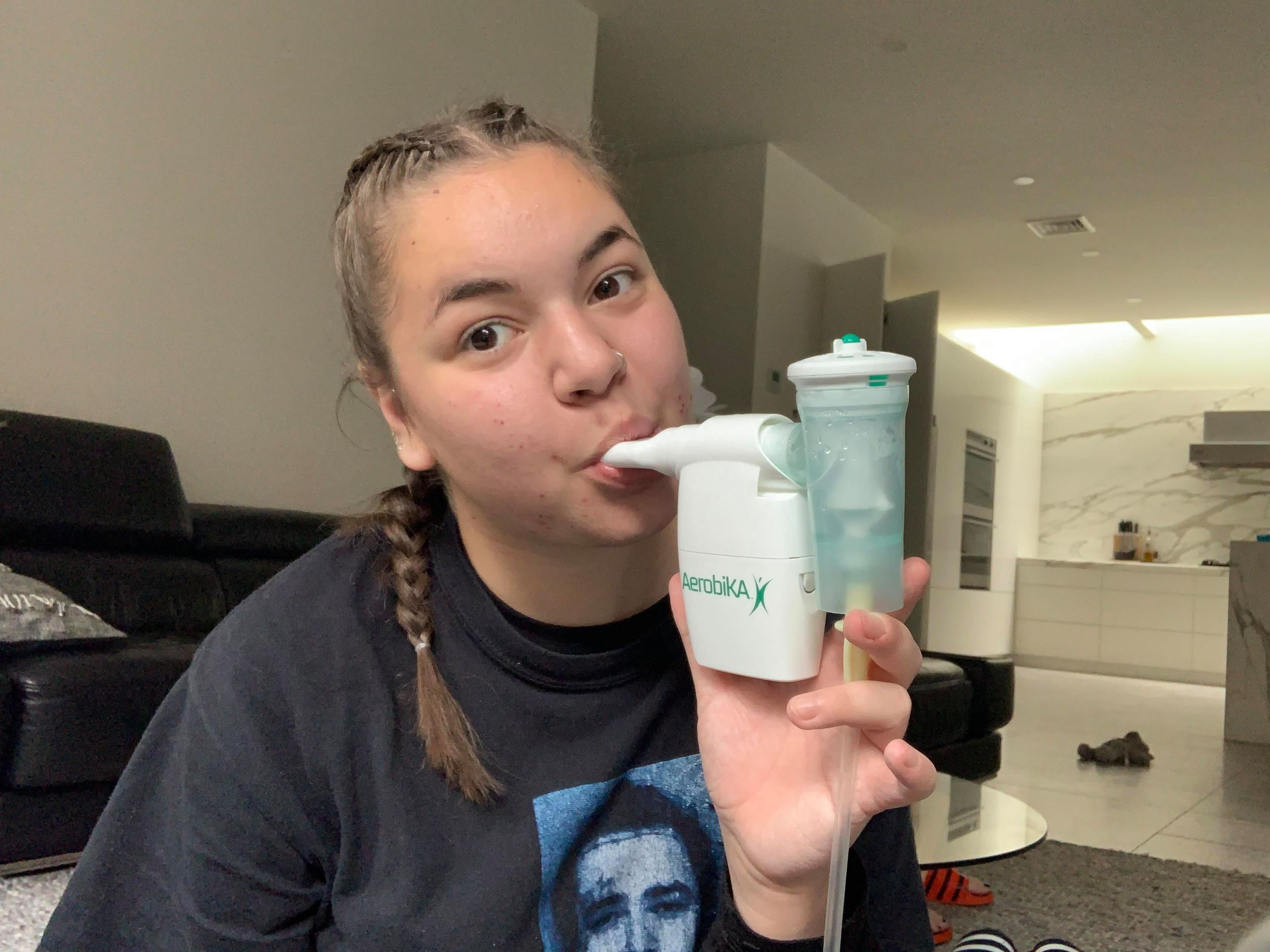
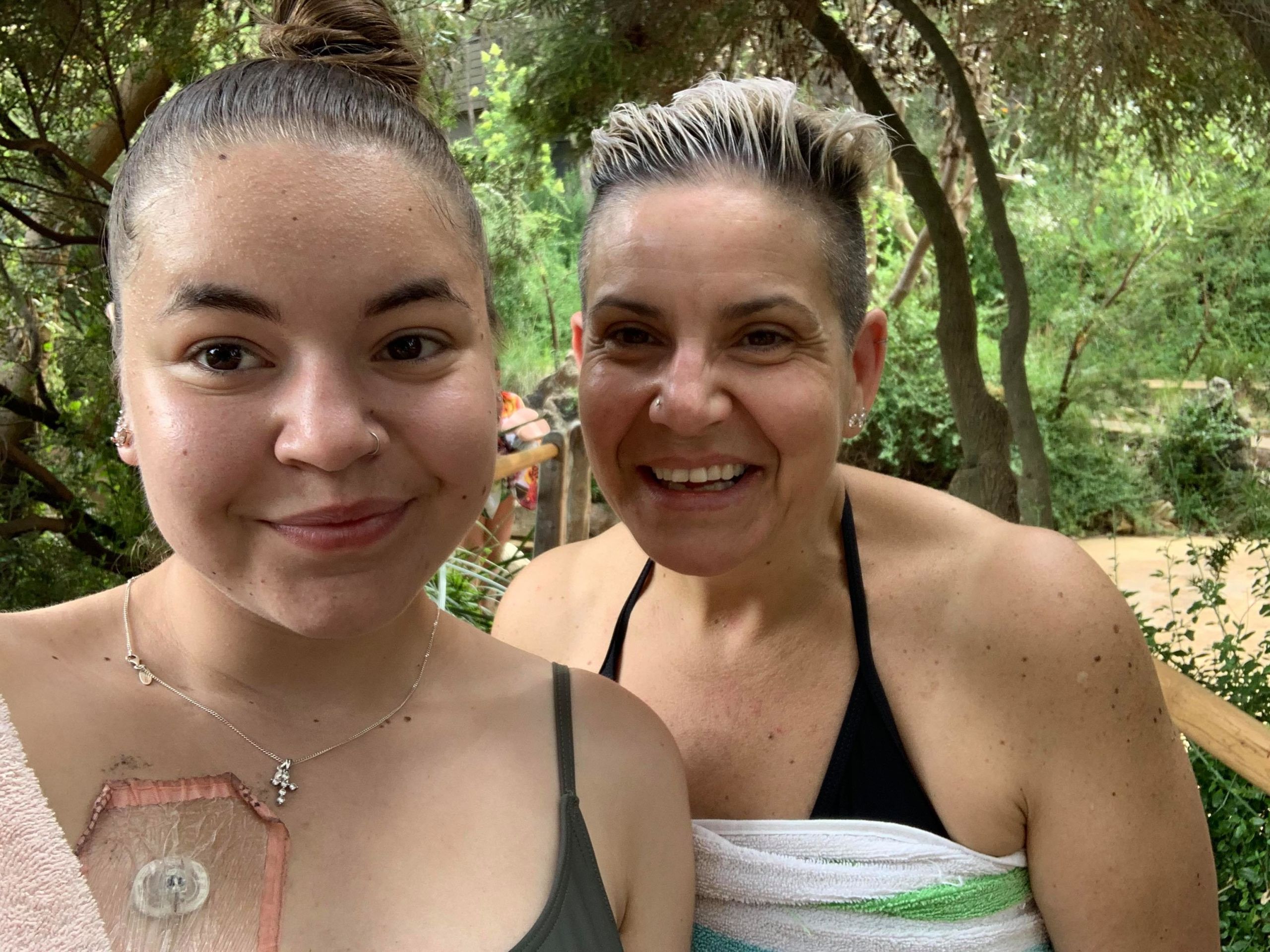

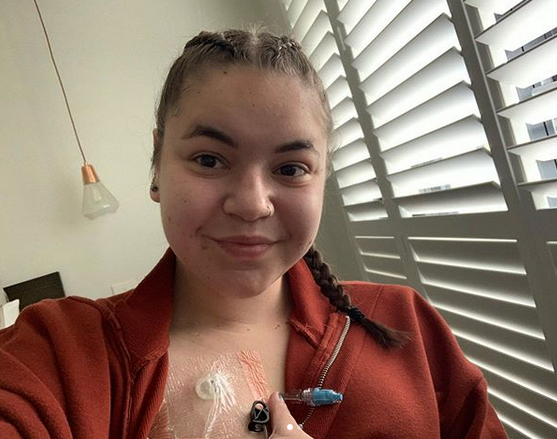
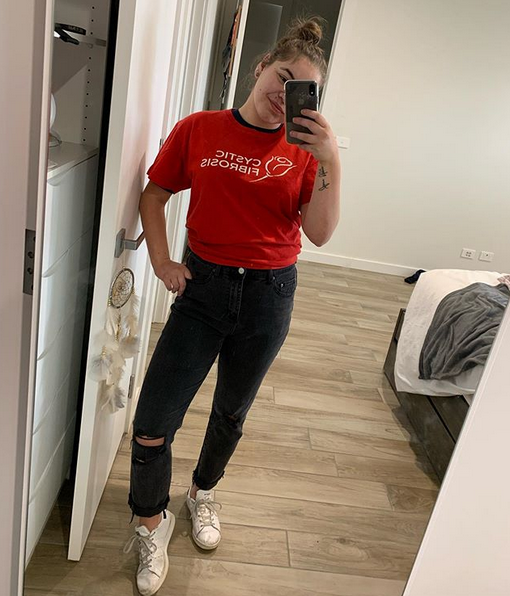

As Caitlin mentions, COVID19 isolation has made things pretty hard and the impact has been seen right across the Cystic Fibrosis Community. For Knoester, fundraising events for critical funding haven’t been able to go ahead. “80% of our funding comes from holding public events like a ball, or a walk, or run, or any kind of event outside or inside. And because we can't do any of that and haven't been able to since February this year our funding has just completely dried up. Fortunately we do have a small amount of reserve that we're able to continue to fund our programs. But that will come to an end at some point in time and we need to then try to encourage people to start fundraising again”. Furthermore, the national Cystic Fibrosis awareness month and 65 Roses Day, their awareness day – 22nd of May – all occurred right in the middle of lockdown. Public fundraising and awareness events which should have been happening country wide, simply could not happen.
For Knoester and her organisation, they worry what may happen when jobkeeper is cut off in September if the inability to fundraise continues. “If that stops…there is just no way that we could provide the services that we do because the organisation wouldn't be able to pay the staff”. Staff including social workers and event’s planners for organising fundraising. As most of these foundations aren’t particularly financially robust to begin with, the continued loss of income is a huge worry and could have dire consequences. “We're probably the largest CF organisation in Australia, from a geographic and numbers point of view. But smaller organisations [such as]… Tasmania or the ACT or something like that, they may not be as robust and they may well not survive”. Considering the vital role these organisations play for those with CF the thought of them not being able to continue is quite difficult. “Funding is so important because at the end of the day the burden of the disease, stuff definitely comes with the financial burden. It isn’t cheap at all” says Caitlin.
Isolation, for Caitlin, has been tough. Although she is used to long periods isolation, typical of visits to hospital, this has been quite different. At the beginning she did find it relatively ok, purely due to the fact she is “used to it”. However it was more at the six week mark when she became unwell that it didn’t feel quite so ok. “I kept comparing it to when I am in hospital and when I’m not in hospital, that's like meant to be our freedom. It got to that point when I realised like this is not right, like we're not meant to be doing this when we're out of hospital”.
Around the every six to eight week mark, depending on how well or unwell she is, Caitlin is admitted into hospital for a CF ‘tune up’. However, COVID19 made what is usual quite normal trip a little unusual. Where she would normally be admitted to the respiratory ward, she first had to attend the suspected COVID ward. “I had to be tested, and I came back negative for COVID, influenza, the common cold and pneumonia. They were able to rule me out of [COVID] isolation”. Due to all the usual wards being switched around to make room for a coronavirus ward, after waiting seven days to get onto the respiratory ward, she was sent home to complete HITH (Hospital in the Home) for a further seven days. Which ended up being a really good outcome. “It worked out really well this time because I wasn't going to Uni and I wasn't back at work, I was home every day. I was able to do my medications at the times they were due”.
Whilst lock down has made some things tougher Caitlin has taken the opportunity to create an Instagram dedicated to documenting her journey as well as raising awareness. “I do to it because I feel I should educate as much as I can because it isn't well known”. For some time Caitlin tossed up the idea of creating the page, not sure of how it would be received. So far the reception has been pretty positive. “It's definitely gotten around the world to like other CFers in other countries. And now CFCC follows me back too which is great”. Karin Knoester of CFCC holds a similar sentiment to Caitlin. The most important thing being raising awareness with the community. “People with Cystic Fibrosis really do require a whole community to take care of them. And they're very, very resilient people, but they do actually face a significant health challenge. And any awareness that we can raise is always going to be helpful”.
You can find Caitlin on Instagram @chronically__caitlin
For more information or to donate visit https://www.cysticfibrosis.org.au/
